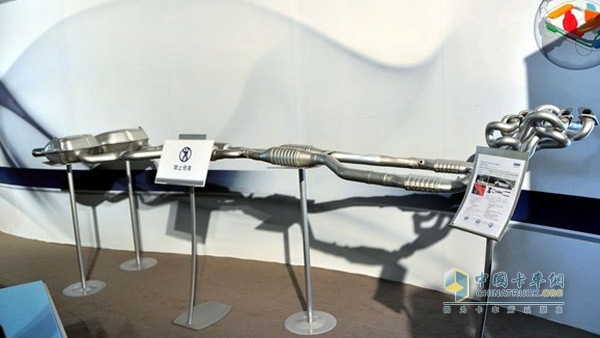Shanghai—Given that the Chinese government is actively fighting against environmental pollution and has introduced more stringent vehicle emission standards , global vehicle emission control companies are stepping up their preparations for more business.
For example, companies such as Bill Gates-backed company EcoMotors and French supplier Valeo are actively helping automakers meet the new diesel emission standards that will take effect in January 2015. However, some people worry that these standards will not be strictly enforced.

Liu Xiaoxin, deputy general manager of Cummins China in the US diesel engine manufacturer, said: "Generally speaking, China's emission standards will increase, and we will benefit from this because it will promote our business growth." Cummins currently cooperates with Valeo, China is its largest Market.
After years of escalating costs, China’s pollution has reached a crisis level, causing tens of thousands of deaths every year, and it has also become a factor of social instability. According to the observations of China's environmental monitoring department, automobiles are the main source of air pollution.
To cope with this problem, China will adopt stricter diesel emission standards next year, prohibiting trucks with high emissions of nitrogen dioxide, carbon monoxide, and particulate matter from traveling on the road.
In 2014, there will also be 6 million cars that have exceeded the standard of emissions. At the same time, the government is also drafting a standard that will significantly reduce the fuel consumption of passenger vehicles.
Li Jia, an analyst at IHS Automotive Consulting, said: "In the long term, multinational component manufacturers will benefit from more stringent emission standards because they are more advanced than Chinese suppliers."
According to a report issued by the Swiss private bank SafraSarasin Co., Ltd. on June 3, leading suppliers of parts and components that can help Chinese auto companies reduce emissions include Continental, Bosch, Denso, Valeo and others.
These companies' fuel-saving technologies include emissions treatment systems, turbocharging technology, direct fuel injection, and powertrain system control.
The World Health Organization predicts that 2 million people will die from air pollution each year, most of them from developing countries. Beijing is one of the most polluted cities in the world.
Last year, the average concentration of PM2.5 pollutants in Beijing reached 89.5, which was 156 times higher than the national standard.
In January of next year, China will adopt the National 4 Standard (NS4) that has been postponed for many years. This standard is equivalent to the Euro 4 standard. Automobile companies only allow sales of trucks and trucks that emit less pollutants than current levels.
The goal of the Chinese government is to reduce the fuel consumption of passenger cars to 6.9 liters per 100 kilometers by 2015, which is currently 7.38 liters.
According to Mathias Miedreich, chairman of Valtice emission control technology company FECT Asia, he predicts that the company's annual sales growth will exceed the industry average growth rate by 40% in the coming years.
His department predicts that China’s income will double to 2 billion euros (16.9 billion yuan) by 2020. He said: "China is the fastest growing market and we believe our products have great advantages."
Other companies are also investing more. In March of this year, EcoMotors and the state-owned FAW Group signed an agreement to jointly build a $200 million engine plant.
AmitSoman, chairman of EcoMotors, said that many Chinese automakers want to use the latest fuel-efficient technologies directly, rather than "only make minor changes to conventional engines."
The German car supplier Eberspaecher Group is also in action. In December last year, it established a joint venture with Shaanxi Automobile Group Co., Ltd. to produce an emission control system for the Chinese market.
Valeo's Miedreich said that one of the risks is that strict emission standards may not be implemented, making the company's investment in technology cause potential losses, but he said that this risk is worth taking.
He said: "The risk is that we have spent money, but no return, our decision is, it will be - we will take this risk."
alloy steel tube,alloy pipes,SA213 alloy pipe,SA210 alloy pipe
Shandong Fengbao Metal Products CO.,LTD. , https://www.fbsteelpipes.com